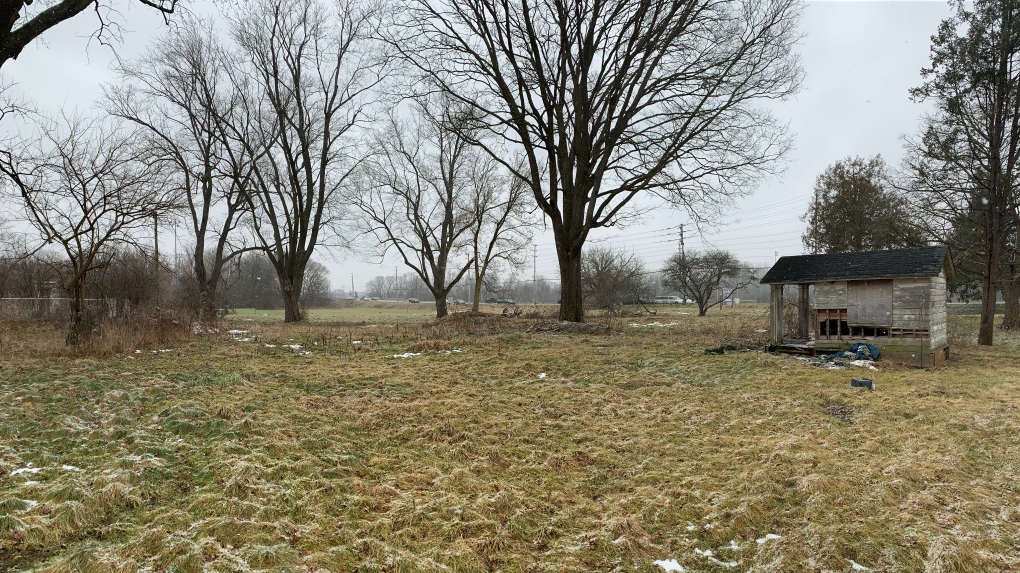Council approves McDonald’s drive-thru in Thames River floodplain — but not everyone’s lovin’ it
A proposed commercial development in northeast London drew dire warnings from its opponents on Tuesday.
“It’s a danger to public safety if you build this type of facility on a floodplain,” warned Coun. Sam Trosow.
On Tuesday, council considered an application by Royal Premier Homes to permit a multi-unit commercial building and a McDonald’s drive-thru restaurant at the southeast corner of Adelaide Street and Windermere Road.
“The subject lands and surrounding properties are situated on flood plain lands associated with the Thames River corridor,” according to a planning report by city staff.
The developer has proposed engineering the property to withstand the flood risk.
“It should be the right of the property owner, I think, to do what they want within our minimal restrictions,” argued Coun. Susan Stevenson.
A motion by Coun. Jerry Pribil proposed reducing the intensity of the development from five commercial units down to three (including the McDonald’s drive-thru).
“It’s a privately owned lot with a commercial use permit,” Pribil said.
What followed was a meandering debate about the Pribil’s amendment as well as procedural matters related to public notice.
Coun. Skylar Franke expressed doubt that the engineered mitigation measures would be able to withstand the long-term risk of severe flooding caused by climate change.
“I do believe this area will flood and eventually this development will be underwater, regardless of if there is a moat and a drawbridge,” Franke predicted.
 1310 Adelaide St. N. and 795 Windermere Ave. in London, Ont. are subject to rezoning. (Bryan Bicknell/CTV News London)
1310 Adelaide St. N. and 795 Windermere Ave. in London, Ont. are subject to rezoning. (Bryan Bicknell/CTV News London)
But Coun. Peter Cuddy was more optimistic about being able to protect the property from severe flooding.
“I think quite frankly it will work,” Cuddy told colleagues. “While there may be some flooding, it won’t be our problem, it will be the problem of the developer and owner.”
Trosow warned that it could become council’s problem if flooding in the future prompts a lawsuit.
Council voted 10-5 in favour of the revised development proposal with two commercial units and the McDonald’s restaurant.
In favour:
- McAlister
- Lewis
- Cuddy
- Stevenson
- Pribil
- Rahman
- Lehman
- Van Meerbergen
- Peloza
- Hillier
Opposed:
- Trosow
- Hopkins
- Franke
- Ferreira
- Morgan
However, council’s decision isn’t the final word.
Construction can’t begin until the Upper Thames River Conservation Authority (UTRCA) provides its approval.
“As it’s in a floodplain, which is an erosion hazard, this developer will need to get a Section 28 permit in order to start any development on site,” Franke explained.
The Section 28 regulation allows the UTRCA to ensure that proposed development and other activities have regard for natural hazard features in order to:
- Prevent loss of life
- Minimize property damage and social disruptions
- Reduce public and private expenditures related to emergency operations, evacuations and restoration
- Minimize the hazards associated with development in flood plains and areas that are susceptible to erosion, which may require expensive protective measures in future years
CTVNews.ca Top Stories

Southern California wildfire destroys many structures; governor declares state of emergency
A wildfire whipped up by extreme winds swept through a Los Angeles hillside dotted with celebrity residences Tuesday, burning homes and forcing the evacuation of tens of thousands of people.
Trump is open to using 'economic force' to acquire Canada; Trudeau responds
Prime Minister Justin Trudeau said 'there isn’t a snowball’s chance in hell that Canada would become part of the United States,' on the same day U.S. president-elect Donald Trump declared that he’s open to using 'economic force' to acquire Canada.
A B.C. mom's real-life nightmare and the search to find her trafficked daughter
A Vancouver island mom shares the story of what happened to her teenaged daughter – and a warning for other parents about sex trafficking.
Liberal leadership hopeful Frank Baylis noncommittal on eliminating consumer carbon tax
Liberal leadership hopeful Frank Baylis says eliminating the consumer carbon tax alone will not 'solve the affordability issue for Canadians.'
Canadian naval vessel shadowed by Chinese war ship in the East China Sea
CTV National News is on board the HMCS Ottawa, embedded with Canadian Navy personnel and currently documenting their work in the East China Sea – a region where China is increasingly flexing its maritime muscle. This is the first of a series of dispatches from the ship.
Patient dies in waiting room at Winnipeg hospital
An investigation is underway after a patient waiting for care died in the waiting room at a Winnipeg hospital Tuesday morning.
Limit coffee-drinking to this time window to lower early death risk, study suggests
Drinking coffee has repeatedly been linked with better heart health and prolonged life. But the benefits of coffee consumption could depend on when you drink it, new research has found.
B.C. 'childbirth activist' charged with manslaughter after newborn's death
A British Columbia woman who was under investigation for offering unauthorized midwifery services is now charged with manslaughter following the death of a newborn baby early last year.
Man who exploded Tesla Cybertruck outside Trump hotel in Las Vegas used generative AI, police say
The highly decorated soldier who exploded a Tesla Cybertruck outside the Trump hotel in Las Vegas used generative AI including ChatGPT to help plan the attack, Las Vegas police said Tuesday.


































